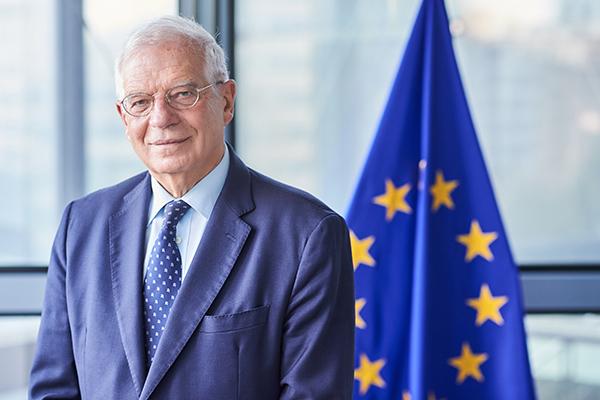Borrell to convene meeting of EU foreign ministers to boycott Hungary summit – Politico
EU foreign policy chief Josep Borrell is set to organize a competing meeting for foreign ministers, effectively boycotting Hungary's planned summit during its EU presidency.


European Union foreign affairs ministers are planning to bypass Hungary’s upcoming foreign affairsummit by attending a separate meeting organized by EU foreign policy chief Josep Borrell, Politico reports.
Hungary, which holds the EU Council presidency, plans to hold a summit of foreign ministers in Budapest on 28-29 August. However, after Orban obstructed aid to Ukraine and visited Russia and China, many EU foreign ministers sought a way to avoid attending the summit. These visits were reportedly not coordinated with other EU leaders, further exacerbating tensions.
Reuters reported earlier in July that several European Union countries, including Sweden, will not send ministers to meetings linked to Hungary’s EU presidency.
Three EU diplomats, speaking on condition of anonymity, told Politico that Borrell plans to summon the ministers to a “formal” foreign affairs council coinciding with Orbán’s summit.
“If there’s a formal foreign affairs council, organized by the high representative [Borrell] the same day, the ministers won’t be able to go to Budapest,” one diplomat explained.
Politico reports that several EU countries, including France and Germany, have informally discussed the plan to boycott the Budapest summit. Borrell’s team is expected to present the proposal to the EU’s 27 permanent representatives this week.
This move follows a recent incident where Hungary’s EU envoy, Bálint Ódor, faced harsh criticism from colleagues at a meeting earlier this month. According to Politico, all countries except Slovakia voiced their concerns about Hungary’s actions.
The planned boycott is seen as a significant rebuke to Hungary, particularly given that hosting such summits is typically a prestigious opportunity for the country holding the EU presidency. One diplomat told Politico that by boycotting the Budapest meeting, other foreign ministers aim to “send a clear signal that Hungary does not speak for the EU.”
This development is the latest in tensions between Hungary and other EU members. Politico notes that relations had been strained even before the Russia-Ukraine war due to concerns about Hungary’s democratic backsliding and its tendency to disrupt EU operations for political gain.
The effectiveness of this strategy was demonstrated earlier when only seven ministers from other countries attended a meeting on industrial policy hosted by Hungary in Budapest, with no commissioners present.
Orban made surprise visits to Kyiv, Moscow and Beijing in the past two weeks on a so-called “peace mission” without an EU mandate.
His meeting in Moscow with Russian President Vladimir Putin particularly angered some other NATO members, who said the trip gave Putin legitimacy while the West wants to isolate him over the war in Ukraine.
While in Kyiv on 2 July, Orban said he presented Zelenskyy with a ceasefire proposal for talks with Russia.
According to a statement from Kyiv on 2 July, Ukrainian President Volodymyr Zelenskyy rejected a suggestion from Hungarian Prime Minister Viktor Orban to consider a ceasefire in Ukraine.
Against the backdrop of Orban’s visit to Moscow, he said, to continue the “peace mission,” the Ukrainian Foreign Ministry then reminded that for Kyiv, the principle of “no agreements on Ukraine without Ukraine” remains inviolable and called on all states to adhere to it strictly.
Read also:
- NATO officials praise innovative Ukrainian DELTA combat system
- Summit in Washington: Ukraine’s NATO dream deferred, but not dead
- MEP Hayer criticizes Hungary for Orbán’s visits and calls for sanctions
- Some EU states not to send ministers to presidency meetings in protest at Orban’s Russia trip



